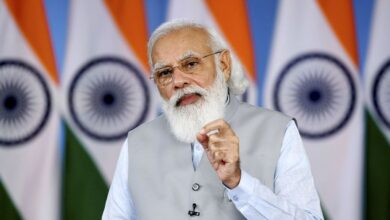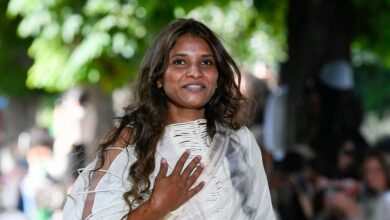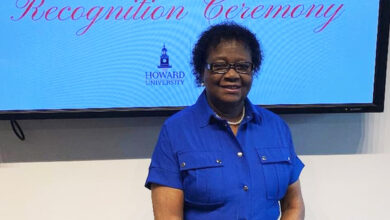By Tamara Shiloh
The March on Washington Movement was the most militant and important force in African-American politics in the early 1940s. It was formed to protest segregation in the armed forces and the exclusion of people of color for defense jobs and New Deal programs.
Early lobbying efforts to desegregate the military had not persuaded Pres. Franklin D. Roosevelt to act. In response, A. Philip Randolph, a labor organizer and founder of the Brotherhood of Sleeping Car Porters and the Negro American Labor Council, proposed the idea of a national, Black-led march on the Capitol city to highlight the issue.
But the march never happened.
Roosevelt agreed to issue an executive order forbidding discrimination against workers in defense industries and government, and establish the Fair Employment Practice Committee to investigate charges of racial discrimination. In response to Roosevelt’s actions, Randolph called of the protest.
A Defining Moment in Washington: Aug. 28 1963
It was the largest gathering for civil rights of its time. An estimated 250,000 people attended the momentous event. Held at the National Mall, attention was focused on employment discrimination, civil rights abuses against Blacks, Latinos, and other disenfranchised groups, and support for the Civil Rights Act that the Kennedy administration was attempting to pass through Congress.
The March on Washington for Jobs and Freedom was a collaborative effort, but the original idea came from Randolph. Other sponsors were Roy Wilkins, Whitney Young, Martin Luther King Jr., James Farmer, and John Lewis, all leaders of major civil rights groups. Including Randolph, the men were known collectively as the “Big Six.”
This march became one of the defining moments of the civil rights movement, and one of the most iconic speeches in American history, “I Have a Dream,” was delivered that day by King.
More 1963 Milestones Moments.
Cicely Tyson appears on the TV show “East Side, West Side,” becoming the first African American to land a major role in a television series.
Sidney Poitier wins an Oscar for Best Actor for his role in the film, “Lilies of the Field.”
Tennis champion Althea Gibson, who was also an excellent golfer, becomes the first Black woman to compete in the Ladies’ Professional Golf Association tournament.
Leslie Shaw became the first Black postmaster in any major U.S. City.
Black student Harvey Gantt enters Clemson University in South Carolina, the last U.S. State to banish its segregation policies.
Arthur Ashe becomes the first African American to make the U.S. Davis Cup tennis team.
Marian Anderson and Ralph Bunche are the first African Americans to win the Presidential Medal of Freedom.
Martin Luther King’s “Letter from Birmingham Jail” is published.
Wendell Oliver Scott becomes the first African-American driver to win a major NASCAR race.
Floyd Patterson is defeated by Sony Liston, losing his world heavyweight title.
Sam Cooke and his band are arrested after trying to register at a whites-only motel in Louisiana. Shortly afterward, he records “A Change is Gonna Come.”
Malcolm X delivers the historic speech: “Message to the Grass Roots.”
Sources:
https://www.britannica.com/event/March-on-Washington
https://www.history.com/topics/black-history/black-history-milestones
https://www.thoughtco.com/african-american-history-timeline-1960-1964-45443
https://www.fs.fed.us/people/aasg/calendar/timeline.html
https://www.blackfacts.com/facts/1963
This article originally appeared in Oakland Post.







